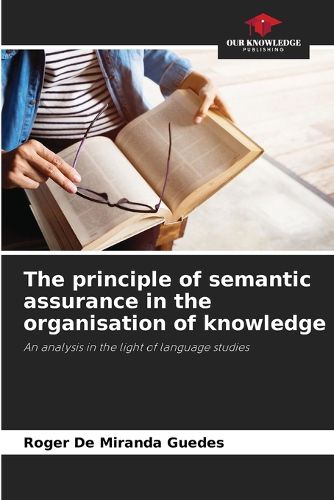Readings Newsletter
Become a Readings Member to make your shopping experience even easier.
Sign in or sign up for free!
You’re not far away from qualifying for FREE standard shipping within Australia
You’ve qualified for FREE standard shipping within Australia
The cart is loading…






Semantic guarantee is considered to be the principle applied to the construction, development and evaluation of Knowledge Organisation Systems (KOS) to justify and validate meanings. In this book, we have tried to establish some arguments and inputs for a theoretical reflection relevant to the structuring components of knowledge organisation, specifically the principle of semantic guarantee, problematising aspects of meaning and sensitising elements that favour multiple points of view and possibilities of analysis in the face of the field's study issues. It can be seen that semantic guarantee is best understood in the argument in favour of the existence of facts and phenomena in reality that are capable of meaning, covering a series of aspects and precepts related to the configuration of meaning in SOCs, capable of guiding them in their projection, development and evaluation. From this reflective excursion into the frontiers of the domains of language and knowledge, the author hopes that the field of knowledge organisation will acquire more conditions and theoretical tools to deal with new (and old) issues in the processes of knowledge organisation and representation.
$9.00 standard shipping within Australia
FREE standard shipping within Australia for orders over $100.00
Express & International shipping calculated at checkout
Semantic guarantee is considered to be the principle applied to the construction, development and evaluation of Knowledge Organisation Systems (KOS) to justify and validate meanings. In this book, we have tried to establish some arguments and inputs for a theoretical reflection relevant to the structuring components of knowledge organisation, specifically the principle of semantic guarantee, problematising aspects of meaning and sensitising elements that favour multiple points of view and possibilities of analysis in the face of the field's study issues. It can be seen that semantic guarantee is best understood in the argument in favour of the existence of facts and phenomena in reality that are capable of meaning, covering a series of aspects and precepts related to the configuration of meaning in SOCs, capable of guiding them in their projection, development and evaluation. From this reflective excursion into the frontiers of the domains of language and knowledge, the author hopes that the field of knowledge organisation will acquire more conditions and theoretical tools to deal with new (and old) issues in the processes of knowledge organisation and representation.